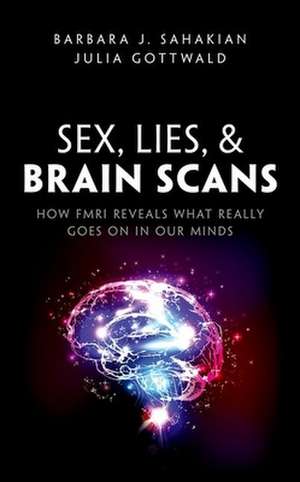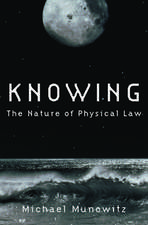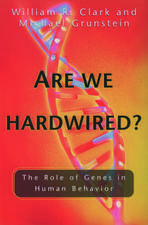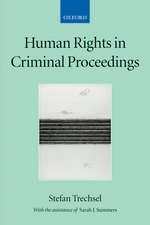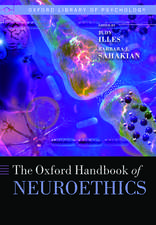Sex, Lies, and Brain Scans: How fMRI reveals what really goes on in our minds
Autor Barbara J. Sahakian, Julia Gottwalden Limba Engleză Hardback – 19 ian 2017
| Toate formatele și edițiile | Preț | Express |
|---|---|---|
| Paperback (1) | 61.44 lei 10-16 zile | +18.93 lei 5-11 zile |
| OUP OXFORD – 28 noi 2019 | 61.44 lei 10-16 zile | +18.93 lei 5-11 zile |
| Hardback (1) | 105.09 lei 10-16 zile | +29.94 lei 5-11 zile |
| OUP OXFORD – 19 ian 2017 | 105.09 lei 10-16 zile | +29.94 lei 5-11 zile |
Preț: 105.09 lei
Preț vechi: 120.09 lei
-12% Nou
Puncte Express: 158
Preț estimativ în valută:
20.11€ • 20.92$ • 16.60£
20.11€ • 20.92$ • 16.60£
Carte disponibilă
Livrare economică 13-19 martie
Livrare express 08-14 martie pentru 39.93 lei
Preluare comenzi: 021 569.72.76
Specificații
ISBN-13: 9780198752882
ISBN-10: 0198752881
Pagini: 176
Ilustrații: 10 figures including a 4 page colour plate section
Dimensiuni: 144 x 222 x 20 mm
Greutate: 0.36 kg
Editura: OUP OXFORD
Colecția OUP Oxford
Locul publicării:Oxford, United Kingdom
ISBN-10: 0198752881
Pagini: 176
Ilustrații: 10 figures including a 4 page colour plate section
Dimensiuni: 144 x 222 x 20 mm
Greutate: 0.36 kg
Editura: OUP OXFORD
Colecția OUP Oxford
Locul publicării:Oxford, United Kingdom
Recenzii
The authors highlight ethical issues that should be of interest to all of us.
A valuable primer on what fMRI can and cannot tell us, at least at the moment
Rich coverage of behavioural research
A valuable primer on what fMRI can and cannot tell us, at least at the moment
Rich coverage of behavioural research
Notă biografică
Barbara J Sahakian is Professor of Clinical Neuropsychology at the University of Cambridge Department of Psychiatry and the Behavioural and Clinical Neuroscience Institute. She is also an Honorary Clinical Psychologist at Addenbrooke's Hospital, Cambridge. She holds a PhD and a DSc from the University of Cambridge. She is Past-President of the International Neuroethics Society, Past-President of the British Association for Psychopharmacology, and a Fellow of the Academy of Medical Sciences. Sahakian is also a Member of the International Expert Jury for the 2017 Else Kröner-Fresenius-Stiftung Prize and a member of the World Economic Forum Global Agenda Council on Brain Research. She is co-author of Bad Moves: How decision making goes wrong and the ethics of smart drugs (OUP, 2013), with Jamie Nicole LaBuzetta, and co-editor of The Oxford Handbook of Neuroethics (OUP, 2011), with Judy Illes.Julia Gottwald is a PhD student at the University of Cambridge in the Department of Psychiatry. She has a strong interest in interdisciplinary research and holds academic degrees in Biochemistry from Free University (Germany) and Neuroscience from the University of Oxford. She is enthusiastic about science communication and is involved in public engagement events, such as Pint of Science and the Cambridge Science Festival. She won the BAP Public Communication Prize 2016 for communicating science to the public, and her 800-word article explaining her research to the general public was shortlisted for the Max Perutz Science Writing Award 2014.
